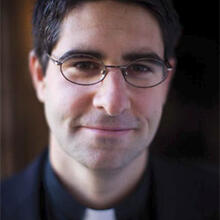Are leaders born or are they cultivated through education and apprenticeship? In their new book entitled Mother Teresa, CEO: Unexpected Principles for Practical Leadership, Ruma Bose and Lou Faust explore Mother Teresa's leadership of the Missionaries of Charity and offer practical suggestions to entrepreneurs and business executives. It is reminiscent of Chris Lowney's recent book, Heroic Leadership: Best Practices from a 450-Year-OldCompany that Changed the World (2005). Both books take examples from religious life in the Church and adapt them to inform the thinkning and practices of business executives. Both books provide examples from religious life that intend to cultivate leadership in their readers. The premise in Bose and Faust's book is: just as Mother Teresa single-mindedly sought to establish a religious institute to aid the church in its manifestation of the Gospel, business executives can orientate themselves single-mindedly to a goal and be successful leaders and generators of profit.
In her brief article in today's Wall Street Journal, Margherita Stancati offers several interesting quotes from Bose and Faust's new book that typify the premise above:
[T]he book makes it clear that “you don’t have to be a saint” to benefit from the teachings of the pious nun. “God is what drove Mother Teresa, but God is a variable,” explained Ms. Bose, who spent time as a volunteer with the nun in Kolkata and is now the co-CEO of a company that focuses on natural healing remedies. “For others, it could be profit.”
The book ranks the nun’s accomplishments “among the great business achievements in human history” and likens the Missionaries of Charity to global brands like Hewlett-Packard, Coca-Cola and Disney.
So what do the book’s corporate tips – referred to as the “Teresa Principles” – boil down to? The main lesson for leaders is to keep their vision simple and close to their comfort zone. In Mother Teresa’s case, this was serving the poor. “Can you imagine the young Bill Gates setting up an organization like the one Mother Teresa did? It would have been terribly difficult because Bill Gates did not have her direct understanding of poverty,” the book says. Instead, it suggests that leaders should ask themselves: “What are you a Mother Teresa of?”
Leaders should also be a living reminder of their organization’s core message– just like Mother Teresa. The nun’s lifestyle choices mirrored the values of the Missionaries of Charity in pretty much everything she did: “Her simple white sari with three blue stripes, reflecting her vows of chastity, poverty and obedience; her simple living quarters; and her even simpler way of life,” the book says.
I think that this is insightful interpretation of Mother Teresa's leadership for those who try to live the Gospel. The power of cohering one's life totally to one's beliefs is generative, powerful, and essential to successful and enduring leadership. These thoughts also echo the words of Christ recorded by Matthew and Luke: "No one can serve two masters, for either he wil hate the one and love the other, or he will be devoted to the one and despise the other. You cannot serve God and Mammon." (Matthew 6:24; Luke 16:13)
Perhaps, the question - "What are you a Mother Teresa of?" - distorts Mother Teresa's life and mission. However, it might be rephrased for the aspiring saint - including those business leaders who look to Mother Teresa as an example of faith, "How are you trying to integrate you faith commitments into your daily life and work in order to make a dramatic difference in yourself and the world?"
Stancati's Wall Street Journal article may be found here.








This is getting awfully close to the Gospel of Prosperity, in my opinion, and the deluded idea that salvation and careerism are the same thing.
Richard Rohr's latest book, Falling Upward, tackles this problem head on with the wisdom of the 2nd half of life that one really doesn't get until experiencing failure.